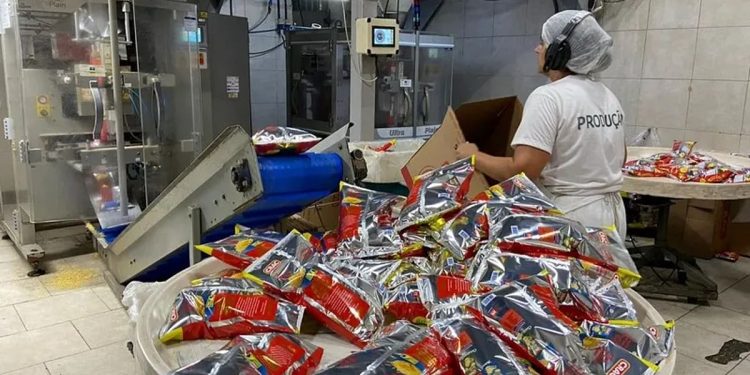#Crac #ShoestringPotatoes #BrazilianAgriculture #InnovationInFarming #PotatoIndustry #AgriculturalRevolution
In 1980, Brazil witnessed the birth of Crac, the first-ever factory producing “batata palha” or “papas pai” (shoestring potatoes). Founded by visionaries Carlos Aníbal, Manoel Luiz, and Renato Cerqueira, Crac emerged from the trio’s realization of the untapped potential in manufacturing a product that would soon become a staple in Brazil’s fried potato consumption.
Initially attempting to acquire an existing potato chip factory in Niterói, the trio’s plans didn’t materialize. Undeterred, they decided to establish their own factory, aptly named “Crac,” in August 1985. The name pays homage to the crispy sound of a potato, setting the tone for their innovative venture.
The journey wasn’t without its challenges. Renato Cerqueira, while enjoying a French filet in a restaurant, envisioned “papas pai” as a standalone product rather than just an ingredient in specific dishes. However, the lack of existing production and machinery posed obstacles.
Undeterred, the team improvised, creating a potato-cutting machine by adapting a meat grinder. Thus, the world’s first shoestring potato factory came into existence. Over the years, Crac evolved its recipes, established a franchise system with 46 stores, and invested in marketing to alter culinary habits across Brazil.
By the late ’90s, Crac expanded its horizons. In 1996, the Sendas group proposed selling shoestring potatoes not only in Crac’s stores but also in supermarket aisles, further influencing Brazilian culinary practices. Today, nearly four decades later, Crac continues its production on a larger scale, with facilities in São Gonçalo and Rio Bonito.
Crac’s journey from a small factory to an industry pioneer underscores the power of innovation and determination. Their creation, “papas pai,” not only became a culinary sensation but also transformed consumer habits. Crac’s impact on the potato industry, from its unique production methods to market expansion, remains a testament to the possibilities within agriculture and food production.
Crac, Shoestring Potatoes, Brazilian Agriculture, Innovation In Farming, Potato Industry, Agricultural Revolution







